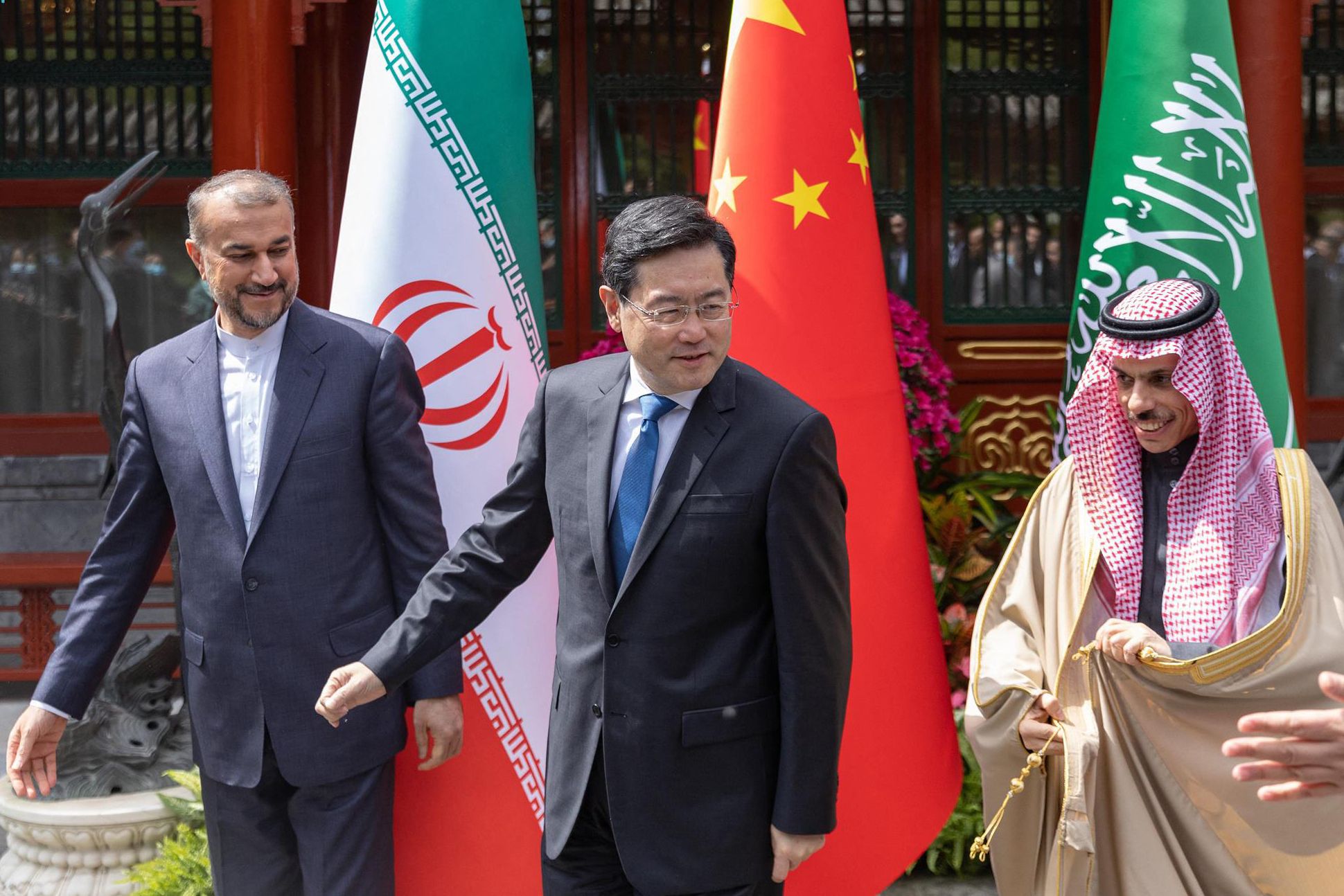Iran and Saudi Arabia to open up travel, normalise diplomatic ties in major breakthrough at Beijing talks
China says it supports Middle Eastern countries in upholding their strategic independence

Your support helps us to tell the story
From reproductive rights to climate change to Big Tech, The Independent is on the ground when the story is developing. Whether it's investigating the financials of Elon Musk's pro-Trump PAC or producing our latest documentary, 'The A Word', which shines a light on the American women fighting for reproductive rights, we know how important it is to parse out the facts from the messaging.
At such a critical moment in US history, we need reporters on the ground. Your donation allows us to keep sending journalists to speak to both sides of the story.
The Independent is trusted by Americans across the entire political spectrum. And unlike many other quality news outlets, we choose not to lock Americans out of our reporting and analysis with paywalls. We believe quality journalism should be available to everyone, paid for by those who can afford it.
Your support makes all the difference.Saudi Arabia and Iran have agreed to reopen diplomatic missions in their respective capitals, in a step toward reconciliation after seven years of tension.
The deal was brokered in Beijing, where the foreign ministers of both Middle Eastern nations met with their Chinese counterpart on Thursday.
As part of the deal, the two sides would also study the prospect of resuming flights and facilitating the visa process, Iran's semiofficial news agency ISNA reported.
Longtime rivals Riyadh and Tehran announced a China-brokered agreement in March in an effort to restore relations marred with conflict.
In a joint statement released after talks between Iranian foreign minister Hossein Amir-Abdollahian and his Saudi counterpart Prince Faisal bin Farhan al-Saud on Thursday, the two sides vowed to continue to work together to improve ties.
"The two sides emphasised the importance of following up on the implementation of the Beijing Agreement and its activation in a way that expands mutual trust and the fields of cooperation and helps create security, stability and prosperity in the region," said the statement.
The rapprochement comes as a major diplomatic victory for Beijing as the Arab states perceive the US as slowly withdrawing from the wider Middle East.
Beijing supports countries in the Middle East in upholding their strategic independence, getting rid of external "interference", and keeping the region's future in their own hands, Chinese foreign minister Qin Gang said following a meeting with his Iranian and Saudi counterparts.
The reconciliation between Sunni Saudi Arabia and Shia Iran could potentially become a step toward stabilising the conflict in the Middle East, where the two countries have supported proxy forces that are either at daggers drawn or openly at war.
Saudi Arabia's state-run Al-Ekhbariya TV showed Iranian and Saudi foreign ministers shaking hands before sitting side by side.
"The beginning of Tehran-Riyadh official diplomatic relations, the resumption of Hajj Umrah, economic and commercial cooperation, the reopening of embassies and consulates general, and the emphasis on stability, sustainable security and development of the region are the issues agreed upon and on the common agenda," Mr Amir-Abdollahian tweeted.
This was the first official meeting between the two countries since 2016, when the Saudi embassy in Tehran was stormed during a dispute between the two nations over Riyadh's execution of a Shi'ite cleric.
The ties began worsening a year earlier, after Saudi Arabia and the United Arab Emirates intervened in Yemen's war, where the Iran-aligned Houthi movement ousted a Saudi-backed government and taken over capital Sanaa.
Riyadh has accused Iran of arming the Houthis, who launched missiles and drones at Saudi cities and oil facilities. Saudi blamed an attack on Aramco oil facilities in 2019, which knocked out half of its oil output, directly on the Islamic Republic.
Tehran denied those accusations.
Meanwhile, both the nations, according to the joint statement, underlined the importance of reviving a security pact signed in 2001, under which both sides agreed to cooperate to tackle terrorism, drug-smuggling and money laundering, as well as a trade and technology pact from 1998.
The talks between the foreign ministers are expected to be followed by Iranian president Ebrahim Raisi's visit to Riyadh.
With agency inputs



Join our commenting forum
Join thought-provoking conversations, follow other Independent readers and see their replies
Comments